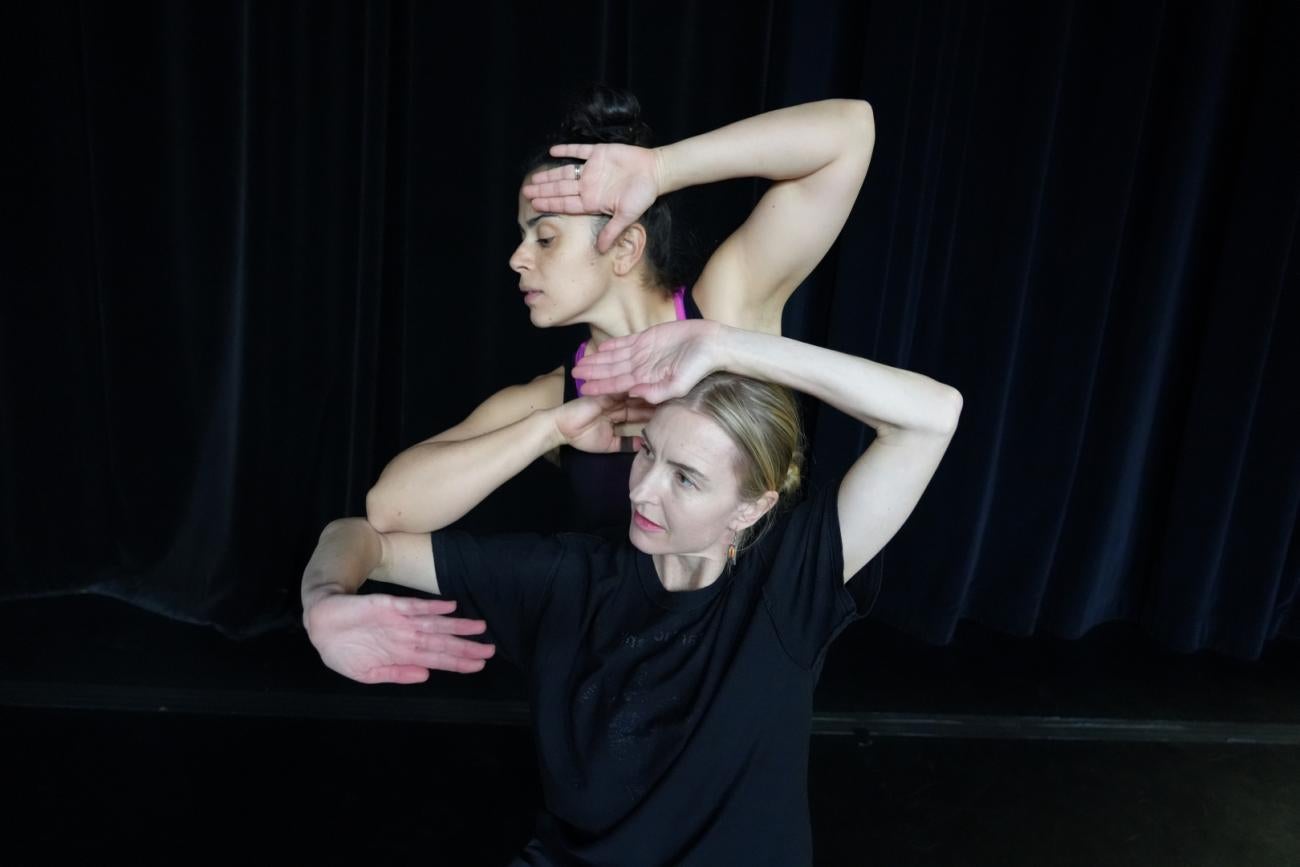
Editor's note: this story was originally published in Around the O — An evening of song and dance at the University of Oregon Beall Hall will celebrate the past and future of feminism — recognizing the progress made through cutting-edge gender scholarship while confronting the complex issues that still need work in the years to come.
In the spirit of collaboration, a March 8 recital entitled "Feminist Futures" will join the Center for the Study of Women in Society and the School of Music and Dance together in performance and creative practice to recognize the 50th anniversary of the center. The 90-minute concert will start at 8 p.m. with a reception to follow.
"We were so honored that Dean Sabrina Madison-Cannon and colleagues in music and dance immediately came on board and offered to share with us their vision of feminist futures," Sangita Gopal, CSWS director, said. "The sensory effects of performance to move us to thought and action have been a central component of feminism from its earliest days, and we are so excited for our communities and students to experience that."
Preconcert panel on diversity, equity and access
The evening will begin at 7 p.m. with a preconcert panel discussion on diversity, equity and access in the performing arts, led by the Lawrence Graduate Bayreuth Tuben Quintet. Formed in 2019, this ensemble aims to deconstruct the norms of classical music by advancing a nonhierarchical agenda that includes affecting positive social change and creating broader representation for the historically underrepresented.
Professor of Horn Lydia Van Dreel, Associate Professor of Oboe Melissa Peña and Visiting Assistant Professor of Horn Leander Star will take part in the discussion alongside horn players Frances Pinkham and Ann Ellsworth.
"We hope to challenge the practice of rigidity in contemporary classical performance culture and show that flexibility, fluidity and fun make everything better," Van Dreel said.
Performer Peña is also on the Center for the Study of Women in Society advisory board and remarks on how the entire evening of performances came together beautifully. "The number and variety of artists and scholars from the SOMD who were eager to collaborate on this project allowed the program to come together rather organically," Peña said. "We are proud to represent a wide array of unique perspectives on the expression of feminism through music and dance."
Exploring feminism through dance
The audience will also witness a one-time-only improvisational dance performance centered around gender, identity, societal barriers and personal stories. Associate Professor of Dance Shannon Mockli will join composer and Associate Professor of Music Technology Akiko Hatakeyama and Brazilian dancer and choreographer Bárbara Lima to create the piece.
Drawn on their various experiences as women, their movements will seek the tenderness of reaching toward one another, the fierceness of pushing into one another and the support in providing each other an anchor to lean into, as well as a fulcrum to spin away from. Mockli notes the 20-minute piece may lend itself to a spaciousness that can be unsettling, and yet, offers a deepening and opportunity to claim, "we are here, now, with each other" seeking to feel, to move and to be moved.
"The process of working with Bárbara and Akiko has felt like an embrace," Mockli said. "We've had vulnerable conversations, sharing so much of our deepest thoughts and experiences. We've witnessed and heard each other in our vulnerability. We've moved those things forward into our music and dance expression."
Recognizing an underrepresented composer
Composer Mary Turner Salter (1856-1932) wrote over 200 songs in her lifetime, but was never given rightful recognition for them, and almost none have ever been recorded or studied.
Through a presentation and performance by three music and dance faculty members, the audience will learn what makes Salter's songs so extraordinary, and what they reveal about the many other women composers from the era whose music has also been marginalized.
Professor of Music Theory Stephen Rodgers will lead the lecture and Assistant Professor of Voice Camille Ortiz will perform four Salter songs, accompanied by Gustavo Castro-Ramirez.
"I hope the audience will be blown away by the beauty and inventiveness of Salter's songs," Rodgers said. "It's a shame that they've been neglected — and once you hear them performed by Camille and Gustavo, you'll wonder why there isn't a 10-volume set of Salter recordings! I also hope the audience will see that as wonderful as Salter is, she's but one example among hundreds of other women composers whose music has been overlooked. There is so much music left to explore if we want to have a fuller picture of music history."
Prior to this performance, Rodgers, Ortiz and Castro released four world-premiere recordings of Salter's songs, "Afterglow," "The Lake," "The Pine Tree" and "The Tanger." They can be found on Art Song Augmented, a website created by Rodgers and dedicated to highlighting the works of underrepresented composers. In 2021, the Center for the Study of Women in Society joined the project by awarding a faculty research grant to Rodgers to support his work on underrecognized woman composers.
The recital is part of a year-long celebration of the interdisciplinary impact of the Center for the Study of Women in Society, with events in partnership with departments and centers across the University of Oregon, including invited guest speakers, panel discussions, workshops, performances, art exhibitions and more.
—By Kristen Hudgins, School of Music and Dance
—Top photo: Brazilian dancer and choreographer Bárbara Lima (top) performs with University of Oregon Associate Professor of Dance Shannon Mockli.

